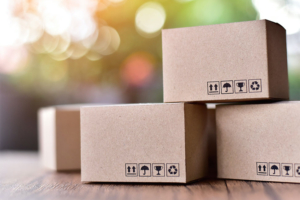Online shopping is vital, but it can get addictive – and the more you do it, the riskier it can become! Whie it’s nearly impossible to avoid every risk, there’s so much you can do to make your digital shopping experience safer.
Whether you’re using retail giants like Amazon or browsing boutique gifts from independent sellers, the key safety protocols should remain the same.
Along with knowing how to spot online shopping scams, creating secure passwords is key. We’ve explained more about how to get it right here.
FOOD NEWS: Arizona economy keeps rolling: Here are the numbers
Why are strong passwords so important?
Passwords protect personal accounts across an array of websites, platforms and devices. From social media applications to your favorite designer store, online accounts all ask you to set up a username and password.
Robust passwords help you to keep your personal and financial information away from online threats. This is especially critical in e-commerce environments, which are especially attractive to scammers.
If you spot a deal that seems too good to be true, you should always remain cautious. Scammers will take advantage of weak passwords, or if you set up on a fake website, you might encounter a non-delivery scam—that’s where your goods never turn up. Remember, online crime should be reported to the FBI.
How to create a strong and memorable password
You’ll need a unique password for each account. Don’t be tempted to use something simple like your pet’s name or the name of your town, because these are easy to guess—and often used as security questions too.
We recommend mixing phrases with random words to create complex yet memorable passwords. These could be colors, place names, greetings, objects, or even words in another language. Most online shopping websites require special characters and uppercase letters too.
How to enhance your password security
- Use management tools
Online tools can help you with your password security. For example, you can use a strong password generator to create complex codes and store them securely too. This takes a lot of pressure away from you.
Creating unique passwords for each account is essential. If you use even a variation of the same password, you make things easier for criminals.
- Implement multi-factor authentication
Multi-factor authentication adds a vital layer of security to your online shopping accounts. Activating it means that you’ll be prompted to confirm your identity when you attempt to access a service.
This keeps you proactive about your own security and significantly reduces the chances of unauthorized access to your accounts.
- Update and monitor passwords regularly
Finally, don’t forget that you should be changing all your passwords periodically and monitoring accounts for any suspicious activity.
We recommend updating every account at least monthly. This ensures that your records are up-to-date, and you can carry on shopping with total peace of mind against your account being hacked.




